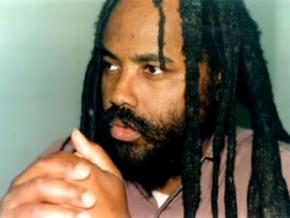A legal setback for Mumia
of the Campaign to End the Death Penalty explains the latest travesty of justice in the case of Mumia Abu-Jamal.
MUMIA ABU-JAMAL, who has been fighting for freedom from his Pennsylvania death row cell for the past 28 years, was dealt a legal setback in a ruling handed down by the U.S. Supreme Court on January 19.
A federal judge had ordered a new sentencing hearing for Mumia on the grounds that the trial judge, Albert Sabo--who was heard to say during the original trial "I'm gonna' help 'em fry the nigger"--gave improper jury instructions about deciding on a death sentence. Prosecutors appealed this order, as well as a federal appeals court decision upholding the ruling. Last week, the Supreme Court justices overturned the ruling for a new sentencing hearing and sent the case back to a lower court for "further consideration."
Mumia is a former Black Panther and radio journalist who gained a reputation for exposing the violence of the Philadelphia police force and the racism of the city's political establishment. He was framed for the 1981 murder of a Philadelphia police officer, Daniel Faulkner.
Police and prosecutors went all-out to win a conviction against Mumia, coercing witnesses to testify against him and even claiming they had obtained a confession from Mumia while he clung to life in a Philadelphia hospital, suffering from gunshot wounds inflicted by Faulkner.

Prosecutors used 11 of their 15 peremptory challenges to keep African Americans off the jury in a case involving a Black defendant accused of shooting a white police officer. The trial jury had just two African Americans on it.
Despite being railroaded to death row, Mumia continued to fight for justice, in his own case and for others. He became known as the "voice of the voiceless" for his radio commentaries from death row. Thousands of people mobilized to defend him and demand his freedom as the state of Pennsylvania moved closer to trying to execute him.
MUMIA NEVER got a fair hearing in the courts, but in 2001, a federal judge, while upholding the murder conviction, overturned Mumia's death sentence on largely technical grounds concerning the instructions that the trial judge Sabo gave to the jury about how to consider mitigating evidence in deciding whether Mumia should be sent to death row.
Prosecutors--backed by a hard core of Mumia haters led by the Philadelphia Fraternal Order of Police--appealed the order, and their demand for his death sentence to be reinstated made its way through the court system along with Mumia's appeals for a new trial.
In April 2008, the Supreme Court rejected the defense appeal for a new trial, but put off a decision on the prosecutors' petition for a reinstated death sentence. Under the 2001 federal court order for a new sentencing hearing, Mumia would have been able to put forward new evidence of his innocence, but the jury would only be able to decide whether Mumia should be sentenced to death or life in prison without parole--since his conviction was left in place.
The Supreme Court waited nearly two years--long enough for another case to reach the justices. Days before its announcement of a decision in the Mumia case, the Supreme Court rejected an appeal of Ohio death row prisoner Frank Spisak--a neo-Nazi convicted of killing three people in a racially motivated murder spree.
Spisak had also won a new sentencing hearing on the grounds that the trial judge had failed to give proper jury instructions about how to consider mitigating evidence. With this death sentence reinstated, the justices overturned the appeals court decision in Mumia's case as well, and ordered a lower court to "reconsider" his sentencing in light of the Spisak decision--essentially, instructions to put Mumia back under a death sentence.
No doubt the attempt to link Mumia to a neo-Nazi was intentional--a bald attempt to smear someone whose life's work, whether inside prison or outside, has been to champion working-class people and the oppressed.
The legal twists and turns in Mumia's case leave the mind spinning in disbelief. The legal odyssey of almost a decade has turned on a technical question about jury instructions--while the obvious question of the racism that infected this case from the beginning is disregarded by judges at every level.
By any measure of "justice," Mumia Abu-Jamal should be a free man. He is 55 years old, a world-renown writer and activist, the victim of a travesty of justice who has been in jail far longer than anyone convicted of a similar crime in any European country.
Justice is long, long overdue for Mumia Abu-Jamal. We have to organize to make sure he wins it in the end.


